This subject got me thinking back when my kids were small, they are 32 and 34 now, and I also did home daycare when they were young, and my daughter did go through a phase of biting, as well as my kids have been bit. I think dogs and kids are very similar in this behaviour, puppies go through a biting, nipping phase, and have to be taught and redirected or corrected for this behaviour, and children, especially toddlers don't have the coping skills, the vocabulary or the maturity to know right from wrong, and have to be taught that these behaviours are not acceptable.
Why Do Toddlers Bite?
Jul 08, 2013
Many toddlers have a “biting stage”. They will bite other children, their siblings or their parents. This type of behavior signifies a lot of concern for parents. The good news is that there are many things a parent or caregiver can do to reduce or eliminate the biting.
Why a Toddler Bites
A toddler will often bite because they feel challenged or they have to satisfy a need. If they are feeling challenged it may be due to the following: - Strong feelings such as frustration or aggravation
- The need for oral stimulation; they may be teething or are truly hungry
- Communicate a desire for personal space; another child may be standing to close
A child can also bite just out of curiosity. Sometimes a toddler will experiment to see what will happen. In this case, a child needs to learn about “cause and effect” and that it is never okay to bite.
Solutions
First off, you should never refer to your child as a “biter”. When you label a child it can intensify the problem. Instead, let your child know that biting is not good behavior and that it hurts others.
- Identify the reasons why your child is biting. Once you know the reasons then you can approach the situation. - Lack of Language Skills: If your child is biting because they are frustrated and are unable to communicate then you can help them put their feeling into words. Help your child express their feelings in appropriate ways. If they are angry, then suggest ways to help with their anger, etc.
- Teething: If your toddler is teething then make sure that they have something to teeth on such as a cold washcloth or teether
- Oral Stimulation: Sometime a child will bite when they are hungry. Offer them healthy crunchy snacks like carrots or celery. Research has found that this type of mediation can reduce biting episodes
What Does Not Work
Although biting is very common behavior in toddlers, there are certain things that will not work and may even make their disposition worse:
- Severe punishment; which teaches fear
- Shaming; teaches them to worry and be anxious - Labeling; they may take on the label you give them
- Aggressive responses; instead of good coping skills
Seeking Help
Sometimes no matter what you do, your child will not stop biting. However, talking to a professional may help you identify the reason why your child is biting. Although there might not be an immediate fix, your child will eventually stop biting once they learn appropriate ways to express their needs.
--------------------------------------------------------------------------------------------------
How Can I Stop My Child From Biting Others?
Aside from piranhas, kids bite too! While we are familiar with kicking, hitting and throwing tantrums – biting is also a behavioral issue that ranks high on the list of problem behavior amongst children. Kids bite because they are easily frustrated, and they can’t vent negative emotions properly yet. For others, biting is an act of self-defense especially when they feel that they are losing a battle against an equally competitive playmate. Young kids also bite because it’s a surefire way of getting attention.
For kids who bite, each member of the family is a vulnerable prey but when the behavior persists and these adorable tots start attending school, their next victim is possibly a classmate. If you don’t want to find yourself in an awkward situation in your child’s school, start addressing this negative behavior as soon as you can.
When a child misbehaves, the usual reaction of parents is to ignore the behavior so that a child is discouraged to use the same tactics in getting attention. However, there is a limit as to how long you need to ignore the behavior because at times this strategy is not applicable to everyone. If your child continues to bite despite ignoring the behavior entirely, it’s time to start looking for a pattern.
If your child’s “biting” episodes are usually triggered by tiredness or hunger, you can already take action and prevent such instances from occurring. Sometimes your child’s behavior may also be triggered by a person so getting issues settled with whoever is concerned can prevent biting instances to happen again. Kids who are under great stress or who are undergoing some kind of transition like a move, a new sibling, or a new school can also trigger biting. During these instances, give your child what he needs and give him that much needed extra love and support.
At playtime, the usual cause of quarrels is sharing because kids are not born sharers. If during playtime your child bites another kid, give more attention to the hurt child and show him what he has done. Get him to apologize and take him out of the stressful situation so you can talk to him privately. He has to realize that biting can inflict pain and it is not acceptable no matter what the circumstances are. Keep a watchful eye on your “biter” during playtime so that you can intervene when things get heated up.
And since your child looks up to you as his role model, respond appropriately when it happens. If you allow your emotions to get the better of you and choose to bite back to teach your child a lesson, you are only showing him that biting is very much acceptable. So the next time you get bitten, take the high road and respond properly – even if it hurts!
Guide your child on how he can translate negative feelings into words. If he can talk and say, “I don’t want my sibling to mess up with my toys”, it can help him gain control of pent up emotions because he will feel some sort of release. I have effectively taught my five year old daughter to write me letters when she’s dealing with negative emotions. The spelling of many of the words may be incorrect but her drawings can easily reveal the emotions that she is dealing with. Many times I am the recipient of hate notes containing broken hearts and crying kids, but it has been a very effective strategy in getting her to snap out of her anger or misery in record time. For young kids who can’t write yet, getting their feelings out in the open through words are more than enough to appease raging emotions.
When you notice your child control his anger in a compromising situation, praise him for his efforts. It means that he’s trying to come to terms with strong feelings and it may already be a step closer towards bite-free play dates and school days. What strategies have you applied in getting your child to stop biting?
--------------------------------------------------------------------------------------------------
Biting in the toddler years
By Seema Verma
Vivan is loving and easy going toddler. He squeals with laughter, gives unexpected hugs to his family and friends but just like other kids he does some not-so adorable things like screaming and biting. His mom says, “I could not believe it was happening. I would feel awful when he would bite children at the park or at the super market”
Those tiny teeth that once caused so much of happiness can at times lead to fear and frustration. Biting is a common childhood habit but no parents wants their kids to be labeled as ‘biters’.
Let’s understand more about the toddler biting behavior.
Why do toddlers bite
Learn new things
Most toddlers enjoy when they learn new things. When they bang their hand on the table they discover that it makes a loud sound. They realize that when they bite someone they get a loud scream of protest. They enjoy learning new things and often bite other children out of excitement.
Teething
Toddlers begin teething at the age of 4 to 8 months. Swelling gums can cause irritation and discomfort to them; they find relief by chewing on something. Children at this age are too naïve to understand the difference between chewing a toy and chewing on a person.
Attention
Many toddlers bite to get attention. When children are in a situation where they feel neglected they often find a way to get noticed. Biting others gives them the quick attention that they need.
Imitation
Older toddlers see other kids biting and imitate the same behavior.
Frustration
Toddlers are at an age where they are growing. At this age they have not learned to completely express themselves or ask for things. They get frustrated when they are not able to communicate what they want and biting is one way to express their feelings.
What parents can do?
Though biting is a common childhood habit but is important to curb the behavior in the initial stages. Read here a few tips that will prove to be useful.
1. Focus on the victim first
When a child bites focus your attention to the person who has been bitten. If the toddler is resorting to this behavior to gain attention, you can reinforce your opinion by showering your attention to the victim and not cuddling or playing with him for some time. Paying attention to the wrong doer may give him the required attention and may reinforce negative behavior.
2. Be firm
Whenever your toddler bites someone, say a firm “Stop Biting” or “No Biting”. Make it clear that biting is wrong by using a firm tone but do not shout or give lengthy explanations unless the child is old enough to understand. Being composed and maintaining your patience will help to resolve the situation quickly.
3. Pay attention to smaller details
After the situation has calmed down, try to figure out if the toddler has been resorting to this behavior to show his frustration or demand for any particular thing. You need to pay attention to smaller points to understand the exact cause of biting.
4. Time out game
For older kids who have gained this behavior by imitating other kids time-outs may be effective. You may take your kid to a designated time out area, for instance, the study room, or kitchen for a minute or two to calm down.
The timeout rule should be set as per the age of the child. For older kids aged 4-5 years the time frame could be 4-5 minutes.
5. Praise the child.
Rather than paying attention to the biting behavior reward you child with praises for every good action or behavior. Praise him when he plays well in his group. Do not just say, “Good boy!” Be specific in your praise, “You are so kind and loving.” This reinforces a positive attitude and may prevent your child from biting in the first place.
Biting is a behavior that is difficult for the parents to tackle and can make them feel embarrassed and frustrated. It is important that parents exercise a lot of patience and don’t get too angry on the child or may end up making the kid stubborn about the biting behavior.
Paying attention to the reason that causes this behavior may help parents come up with useful solutions. It is important to remember that this is passing phase and most toddlers do so only for a short while. Your toddler will soon learn new skills to communicate and get along well with others.
Why Do Toddlers Bite?
Jul 08, 2013
Many toddlers have a “biting stage”. They will bite other children, their siblings or their parents. This type of behavior signifies a lot of concern for parents. The good news is that there are many things a parent or caregiver can do to reduce or eliminate the biting.
Why a Toddler Bites
A toddler will often bite because they feel challenged or they have to satisfy a need. If they are feeling challenged it may be due to the following: - Strong feelings such as frustration or aggravation
- The need for oral stimulation; they may be teething or are truly hungry
- Communicate a desire for personal space; another child may be standing to close
A child can also bite just out of curiosity. Sometimes a toddler will experiment to see what will happen. In this case, a child needs to learn about “cause and effect” and that it is never okay to bite.
Solutions
First off, you should never refer to your child as a “biter”. When you label a child it can intensify the problem. Instead, let your child know that biting is not good behavior and that it hurts others.
- Identify the reasons why your child is biting. Once you know the reasons then you can approach the situation. - Lack of Language Skills: If your child is biting because they are frustrated and are unable to communicate then you can help them put their feeling into words. Help your child express their feelings in appropriate ways. If they are angry, then suggest ways to help with their anger, etc.
- Teething: If your toddler is teething then make sure that they have something to teeth on such as a cold washcloth or teether
- Oral Stimulation: Sometime a child will bite when they are hungry. Offer them healthy crunchy snacks like carrots or celery. Research has found that this type of mediation can reduce biting episodes
What Does Not Work
Although biting is very common behavior in toddlers, there are certain things that will not work and may even make their disposition worse:
- Severe punishment; which teaches fear
- Shaming; teaches them to worry and be anxious - Labeling; they may take on the label you give them
- Aggressive responses; instead of good coping skills
Seeking Help
Sometimes no matter what you do, your child will not stop biting. However, talking to a professional may help you identify the reason why your child is biting. Although there might not be an immediate fix, your child will eventually stop biting once they learn appropriate ways to express their needs.
--------------------------------------------------------------------------------------------------
How Can I Stop My Child From Biting Others?
Aside from piranhas, kids bite too! While we are familiar with kicking, hitting and throwing tantrums – biting is also a behavioral issue that ranks high on the list of problem behavior amongst children. Kids bite because they are easily frustrated, and they can’t vent negative emotions properly yet. For others, biting is an act of self-defense especially when they feel that they are losing a battle against an equally competitive playmate. Young kids also bite because it’s a surefire way of getting attention.
For kids who bite, each member of the family is a vulnerable prey but when the behavior persists and these adorable tots start attending school, their next victim is possibly a classmate. If you don’t want to find yourself in an awkward situation in your child’s school, start addressing this negative behavior as soon as you can.
When a child misbehaves, the usual reaction of parents is to ignore the behavior so that a child is discouraged to use the same tactics in getting attention. However, there is a limit as to how long you need to ignore the behavior because at times this strategy is not applicable to everyone. If your child continues to bite despite ignoring the behavior entirely, it’s time to start looking for a pattern.
If your child’s “biting” episodes are usually triggered by tiredness or hunger, you can already take action and prevent such instances from occurring. Sometimes your child’s behavior may also be triggered by a person so getting issues settled with whoever is concerned can prevent biting instances to happen again. Kids who are under great stress or who are undergoing some kind of transition like a move, a new sibling, or a new school can also trigger biting. During these instances, give your child what he needs and give him that much needed extra love and support.
At playtime, the usual cause of quarrels is sharing because kids are not born sharers. If during playtime your child bites another kid, give more attention to the hurt child and show him what he has done. Get him to apologize and take him out of the stressful situation so you can talk to him privately. He has to realize that biting can inflict pain and it is not acceptable no matter what the circumstances are. Keep a watchful eye on your “biter” during playtime so that you can intervene when things get heated up.
And since your child looks up to you as his role model, respond appropriately when it happens. If you allow your emotions to get the better of you and choose to bite back to teach your child a lesson, you are only showing him that biting is very much acceptable. So the next time you get bitten, take the high road and respond properly – even if it hurts!
Guide your child on how he can translate negative feelings into words. If he can talk and say, “I don’t want my sibling to mess up with my toys”, it can help him gain control of pent up emotions because he will feel some sort of release. I have effectively taught my five year old daughter to write me letters when she’s dealing with negative emotions. The spelling of many of the words may be incorrect but her drawings can easily reveal the emotions that she is dealing with. Many times I am the recipient of hate notes containing broken hearts and crying kids, but it has been a very effective strategy in getting her to snap out of her anger or misery in record time. For young kids who can’t write yet, getting their feelings out in the open through words are more than enough to appease raging emotions.
When you notice your child control his anger in a compromising situation, praise him for his efforts. It means that he’s trying to come to terms with strong feelings and it may already be a step closer towards bite-free play dates and school days. What strategies have you applied in getting your child to stop biting?
--------------------------------------------------------------------------------------------------
Biting in the toddler years
By Seema Verma
Vivan is loving and easy going toddler. He squeals with laughter, gives unexpected hugs to his family and friends but just like other kids he does some not-so adorable things like screaming and biting. His mom says, “I could not believe it was happening. I would feel awful when he would bite children at the park or at the super market”
Those tiny teeth that once caused so much of happiness can at times lead to fear and frustration. Biting is a common childhood habit but no parents wants their kids to be labeled as ‘biters’.
Let’s understand more about the toddler biting behavior.
Why do toddlers bite
Learn new things
Most toddlers enjoy when they learn new things. When they bang their hand on the table they discover that it makes a loud sound. They realize that when they bite someone they get a loud scream of protest. They enjoy learning new things and often bite other children out of excitement.
Teething
Toddlers begin teething at the age of 4 to 8 months. Swelling gums can cause irritation and discomfort to them; they find relief by chewing on something. Children at this age are too naïve to understand the difference between chewing a toy and chewing on a person.
Attention
Many toddlers bite to get attention. When children are in a situation where they feel neglected they often find a way to get noticed. Biting others gives them the quick attention that they need.
Imitation
Older toddlers see other kids biting and imitate the same behavior.
Frustration
Toddlers are at an age where they are growing. At this age they have not learned to completely express themselves or ask for things. They get frustrated when they are not able to communicate what they want and biting is one way to express their feelings.
What parents can do?
Though biting is a common childhood habit but is important to curb the behavior in the initial stages. Read here a few tips that will prove to be useful.
1. Focus on the victim first
When a child bites focus your attention to the person who has been bitten. If the toddler is resorting to this behavior to gain attention, you can reinforce your opinion by showering your attention to the victim and not cuddling or playing with him for some time. Paying attention to the wrong doer may give him the required attention and may reinforce negative behavior.
2. Be firm
Whenever your toddler bites someone, say a firm “Stop Biting” or “No Biting”. Make it clear that biting is wrong by using a firm tone but do not shout or give lengthy explanations unless the child is old enough to understand. Being composed and maintaining your patience will help to resolve the situation quickly.
3. Pay attention to smaller details
After the situation has calmed down, try to figure out if the toddler has been resorting to this behavior to show his frustration or demand for any particular thing. You need to pay attention to smaller points to understand the exact cause of biting.
4. Time out game
For older kids who have gained this behavior by imitating other kids time-outs may be effective. You may take your kid to a designated time out area, for instance, the study room, or kitchen for a minute or two to calm down.
The timeout rule should be set as per the age of the child. For older kids aged 4-5 years the time frame could be 4-5 minutes.
5. Praise the child.
Rather than paying attention to the biting behavior reward you child with praises for every good action or behavior. Praise him when he plays well in his group. Do not just say, “Good boy!” Be specific in your praise, “You are so kind and loving.” This reinforces a positive attitude and may prevent your child from biting in the first place.
Biting is a behavior that is difficult for the parents to tackle and can make them feel embarrassed and frustrated. It is important that parents exercise a lot of patience and don’t get too angry on the child or may end up making the kid stubborn about the biting behavior.
Paying attention to the reason that causes this behavior may help parents come up with useful solutions. It is important to remember that this is passing phase and most toddlers do so only for a short while. Your toddler will soon learn new skills to communicate and get along well with others.
Attachments
-
 image.jpg11.1 KB · Views: 117
image.jpg11.1 KB · Views: 117 -
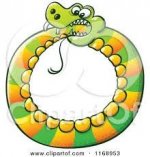 image.jpg12.4 KB · Views: 118
image.jpg12.4 KB · Views: 118 -
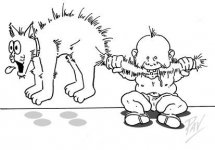 image.jpg22 KB · Views: 123
image.jpg22 KB · Views: 123 -
 image.jpg49.8 KB · Views: 137
image.jpg49.8 KB · Views: 137 -
 image.jpg12.4 KB · Views: 125
image.jpg12.4 KB · Views: 125 -
 image.jpg24.8 KB · Views: 129
image.jpg24.8 KB · Views: 129 -
 image.jpg59.7 KB · Views: 129
image.jpg59.7 KB · Views: 129 -
 image.jpg15.6 KB · Views: 125
image.jpg15.6 KB · Views: 125 -
 image.jpg28.9 KB · Views: 120
image.jpg28.9 KB · Views: 120 -
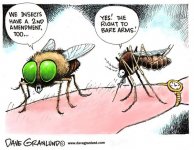 image.jpg67.1 KB · Views: 121
image.jpg67.1 KB · Views: 121 -
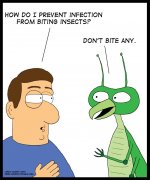 image.jpg60.7 KB · Views: 124
image.jpg60.7 KB · Views: 124 -
 image.jpg57.7 KB · Views: 127
image.jpg57.7 KB · Views: 127 -
 image.jpg14.2 KB · Views: 133
image.jpg14.2 KB · Views: 133 -
 image.jpg8.8 KB · Views: 121
image.jpg8.8 KB · Views: 121 -
 image.jpg14.4 KB · Views: 125
image.jpg14.4 KB · Views: 125 -
 image.jpg121.6 KB · Views: 124
image.jpg121.6 KB · Views: 124 -
 image.jpg6.8 KB · Views: 119
image.jpg6.8 KB · Views: 119 -
 image.jpg97.1 KB · Views: 119
image.jpg97.1 KB · Views: 119 -
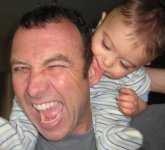 image.jpg30.4 KB · Views: 120
image.jpg30.4 KB · Views: 120 -
 image.jpg8.8 KB · Views: 127
image.jpg8.8 KB · Views: 127





